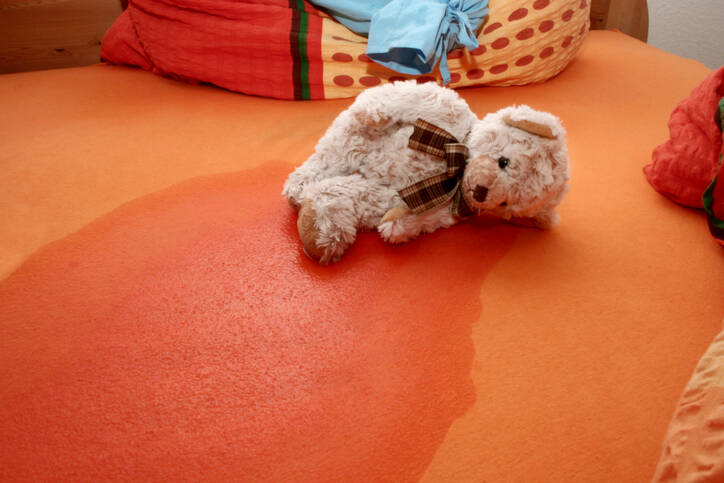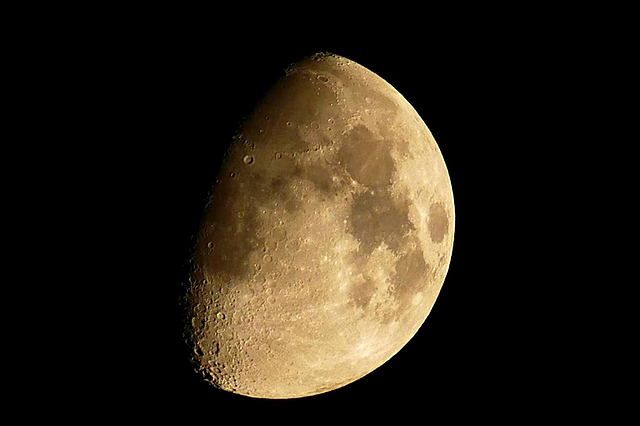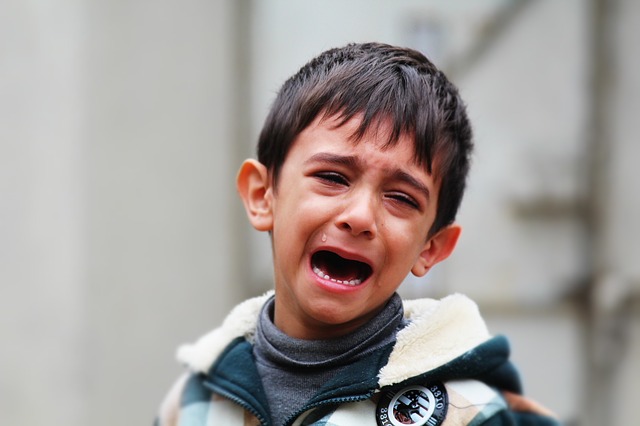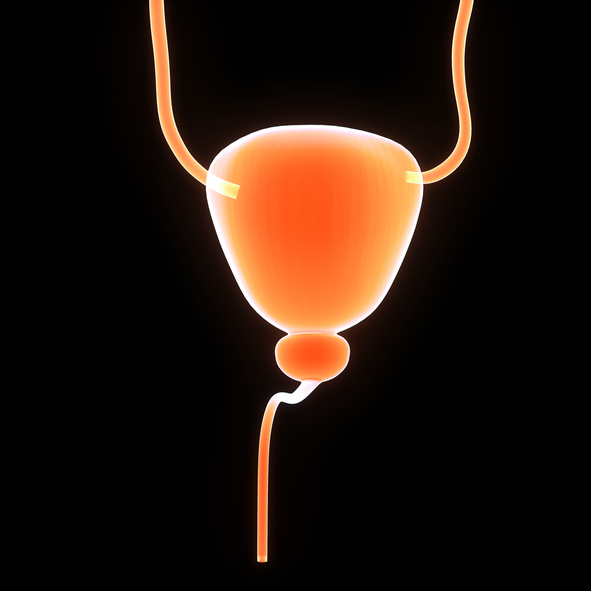- urologyhealth.org - What Is Nocturnal Enuresis (Bedwetting)?
- mayoclinic.org - Bed-wetting
- urologyhealth.org - What is Nocturia?
- sleepfoundation.org - Nocturia or Frequent Urination at Night
- healthline.com - Excessive Urination at Night (Nocturia)
Peeing: what causes it? Not only in children, sometimes even in adulthood

Children suffer from it more often. However, this problem does not avoid adults either. The culprit may be a psychological problem, but also an organic damage or disease. It can be a disease of the urinary tract and other parts of the body. It can be long-term, but also transient.
However, this problem also affects a certain percentage of adults, women and men alike.
The most common is bedwetting
The most common form of enuresis is bedwetting. This type of bedwetting is professionally called enuresis nocturna.
Nocturnal bedwetting is divided into primary and secondary forms. The primary form occurs in about 20% of five-year-olds, 10% of seven-year-olds, 5% of ten-year-olds and 3% of twelve-year-olds. In adulthood, it occurs in about 1% of the population.

The main causes of primary bedwetting are:
- Hormonal cause (there is a disturbance in the secretion of a hormone that regulates urine production during the night hours).
- diseases of the nervous system (in children there is also a disorder of attention, behaviour, speech)
- delayed maturation of the nervous system and urinary reflexes
- hereditary factor (the parent increases the chance of the child wetting the bed as well)
- chromosomal disorder (8Q, 12q, 13q, and 22q11)
- reduced bladder capacity
- undamped bladder contractions during sleep
- sleep disturbances, especially when sleeping too hard, trouble waking up or sleepwalking
- poor drinking habits (increased fluid intake at bedtime or retention of urine during the day)
- improper diet and intake of foods and liquids with caffeine, chocolate, juice
Secondary enuresis occurs after a period without bedwetting, over approximately 6 months. Its most common cause is psychological stress and strain.
What triggers it in children?

In children, starting school, bullying, overwork, death in the family, arguments, parental divorce, or other stressors that children cannot process can trigger this condition.
There is bedwetting in children during the day, but they are more likely to bedwet during sleep. It is influenced by several of the factors already mentioned above.
Bedwetting itself is a psychological burden on the child and the whole family. If bedwetting is present in an older child, it results in low self-esteem. However, once the problem is resolved, it will correct itself.
Bedwetting in adults
It is mainly psychological and stress factors that cause this phenomenon. In adulthood, it is usually a symptom of some disease.
This disease can be caused by a bladder disorder, nerve disorder or low secretion of antidiuretic hormone.
The inability to hold urine and bedwetting in adulthood is typically a disease called incontinence. This can take several forms.
There is the stress form, where there is leakage of urine due to impaired muscle function. Another form is the urge form, where there is a failure to handle the sudden urge to urinate.
In the reflex form, it is a disorder of the nerve connection with the bladder. Sometimes it is also of the mixed type. Often bacterial inflammation of the urinary tract is at the root of the cause.
Enuresis in inflammation of the urinary system

Bedwetting can also be caused by other diseases of the urinary system. An example is inflammation of the kidneys. It is, for example, in children when bedwetting is frequent.
Inflammation is of infectious origin and can occur in acute form or in chronic form. In chronic, the symptoms are less noticeable, but the disease is more prolonged.
Most often, inflammation of the kidneys occurs by spreading the infection directly from the urinary tract. With prolonged and repeated inflammation, kidney failure can occur.
Enlarged prostate
When the prostate gland is enlarged, problems arise, for example, with incomplete emptying of the bladder. In men, the enlarged prostate gland presses on the urinary tract from the lower part of the bladder.
This also means that the man has more frequent urges to urinate and, in some cases, urges to urinate lead to urination and spontaneous leakage of small volumes of urine.
A consequence of congenital developmental defects
It also occurs with a congenital developmental defect of the urethra in boys, i.e. a posterior urethral valve. If it does not manifest itself immediately after birth, then most often in preschool age.
Lower urinary tract dysfunction is in some cases a cause of congenital developmental defect and neurogenic disorder.
Even in diseases outside the urinary system
However, urinary leakage problems are not always associated only with the urinary system. Incontinence can be a consequence of other diseases. In this case, it is a manifestation of them.
Epilepsy is a disease of the nervous system. It is characterised by epileptic seizures. Its epicentre is in the brain, where abnormal 'electrical signals' occur.
Clonic epileptic seizures are muscle twitches. They are involuntary. They affect the muscles of the body and also the bladder. Therefore, incontinence can occur during a seizure.
In adults, nocturnal enuresis also occurs as a result of heart disease. Alzheimer's disease is also a good example of a disease where enuresis occurs.
Bedwetting also occurs in the case of weak bladder muscles and overcrowding of the bladder. Or on the basis of nerve damage due to diabetes.
Bedwetting also occurs in the case of diseases such as cerebral palsy, infections of the nervous system or in children after a cerebral hemorrhage.
Bedwetting may also occur in some people with enterobiasis. Enterobiasis is an infectious disease caused by a parasitic infection caused by the Enterobius worm.
This parasite is popularly called roup and lives in the small and large intestine of humans. This is also why the disease manifests itself mainly by itching of the anus, nervousness and restlessness.
If these parasites get into the bladder, they cause inflammation. The manifestation is bedwetting and problems with urination.
Transient incontinence
Medication, especially psychiatric medication, also has a major effect on bedwetting. Husmann claims that bedwetting can be the result of food allergies. He has shown this in patients in his study.
It also occurs with the aforementioned inflammations, with limited mobility, but also with constipation, when stool presses on the urinary system and affects its proper functioning.
Video o nočnom pomočovaní u detí
Diseases with symptom "Assisting"
Herbs used forAssisting
Interesting resources










